A Good Helper for Urban Domestic and Industrial Waste-RDF Rod Making Machine
1). RDF (Refuse Derived Fuel) rod making machine is a device specially used to convert waste into fuel rods. This technology helps to recycle resources, reduce the amount of landfill, and provide an energy form that can replace traditional fossil fuels. The following is a detailed introduction to the application field, applicable population and working principle of RDF rod making machine:
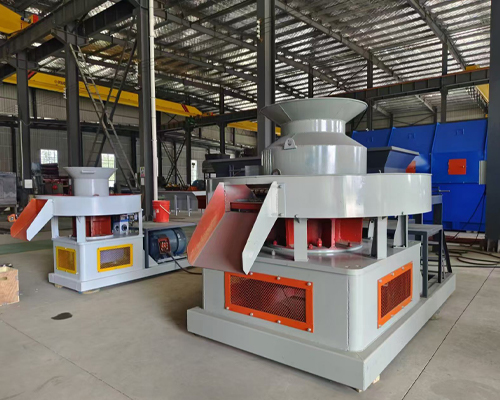
2). Application field
1. Energy industry: RDF fuel rods can be used as a substitute for traditional fossil fuels such as coal and oil, and are used in power plants, industrial boilers and other facilities.
2. Agricultural field: In agriculture, RDF fuel rods can be used for greenhouse heating, drying crops, etc.
3. Industrial production: Suitable for industrial processes that require a lot of heat energy, such as cement manufacturing, ceramic firing, etc.
4. Waste management: Help cities or enterprises deal with large amounts of solid waste that are difficult to recycle or directly incinerate.
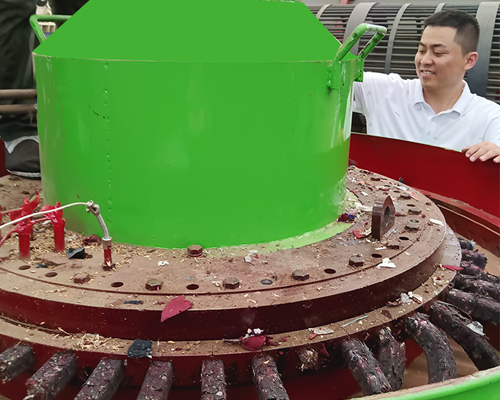
3). Working principle
The workflow of RDF rod making machine is as follows:
1. Raw material collection and pretreatment: First, collect waste suitable for making RDF, including but not limited to non-metallic materials such as paper, plastics, and textiles. These materials go through pre-processing steps such as screening and crushing to ensure the consistency and adaptability of the raw materials.
2. Mixing and proportioning: According to different needs, the pre-processed materials are mixed in a certain proportion, and sometimes some additives are added to improve the fuel performance.
3. Molding: The mixed raw materials are fed into the rod making machine and extruded under high temperature and pressure to form fuel rods with a certain density and shape.
4. Cooling and packaging: The formed RDF fuel rods need to be cooled to maintain their structural stability, and then packaged for transportation or storage.
Choosing the right RDF rod making machine is essential to ensure efficient waste treatment and high-quality fuel rod production. Here are some key factors and suggestions to help you make the right choice:
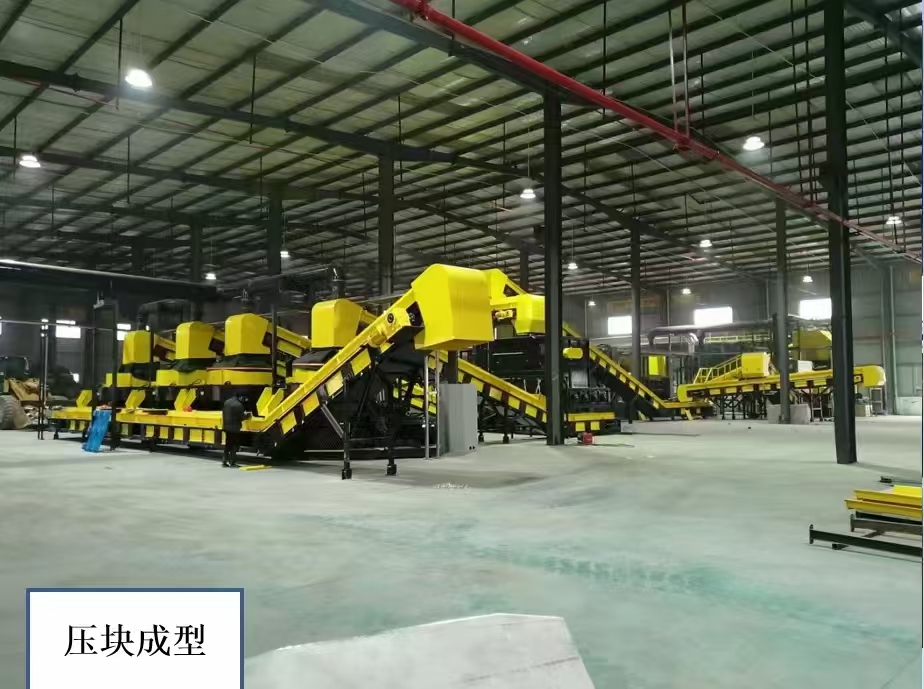
4). How to choose the right machine
1. Production capacity
A. Processing capacity: Choose the right processing capacity according to your production needs. If your waste treatment volume is large, you should choose equipment with stronger processing capacity.
B. Production efficiency: Consider the production speed and stability of the equipment to ensure that it can meet your production goals.
2. Raw material adaptability
A. Raw material types: confirm whether the equipment can handle the various raw materials you plan to use, such as paper, plastic, textiles, agricultural and forestry waste, etc.
B. Raw material pretreatment: understand whether the equipment requires additional pretreatment equipment, such as crushers, magnetic separators, air separators, etc., to ensure the uniformity and consistency of the raw materials.
3. Equipment performance
A. Automation: Choosing equipment with a high degree of automation can reduce manual operations, improve production efficiency, and reduce operating costs.
B. Reliability: Choose equipment with well-known brands and good market reputation to ensure the reliability and durability of the equipment.
C. Maintenance and care: understand the maintenance and care requirements of the equipment, and choose equipment that is easy to maintain and care to reduce downtime and repair costs.
4. Environmental performance
A. Emission standards: ensure that the equipment meets local environmental standards, especially for the treatment of dust and exhaust gas.
B. Noise control: choose low-noise equipment to reduce the impact on the surrounding environment.
5. Economic efficiency
A. Initial investment: consider the purchase cost of the equipment and choose equipment with high cost performance.
B. Operating cost: Evaluate the energy consumption, maintenance costs and consumables costs of the equipment, and choose equipment with lower long-term operating costs.
C. Payback period: Calculate the investment return period of the equipment to ensure that the cost can be recovered and profitability can be started within a reasonable time.
5). Summary
Choosing a suitable RDF rod making machine requires comprehensive consideration of production capacity, raw material adaptability, equipment performance, technical parameters, environmental performance, economy, after-sales service and other aspects. By carefully evaluating and comparing the products of different suppliers, you can choose the equipment that best suits your needs, thereby achieving efficient waste treatment and high-quality fuel rod production.
6). Parameter information
Model | Power(KW) | Capacity(T/H) | Mold quantity | Roll quantity | Over dimension(MM) |
9JK-2600 | 75 | 1-2 | 52 | 2 | 2647*2100*1900 |
9JK-3500 | 110 | 2-3 | 72 | 2 | 3250*2600*2000 |
9JK-4500 | 132 | 3-4 | 88 | 2 | 3350*2800*2200 |
9JK-5000 | 160 | 4-5 | 100 | 2 | 3000*2300*2000 |
9JK-5500 | 160 | 4-5 | 102 | 2 | 3000*2400*2000 |
9JK-6500 | 200 | 4-5 | 120 | 3 | 4400*2970*2495 |
-
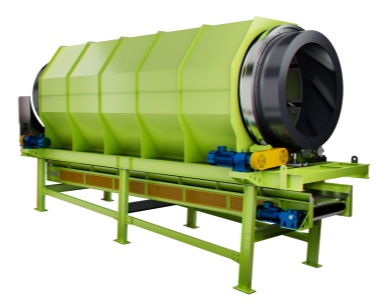 Trommel screenTrommel screen, also known as drum screens, are widely used in various industries for sorting and separating materials.Get Quote
Trommel screenTrommel screen, also known as drum screens, are widely used in various industries for sorting and separating materials.Get Quote -
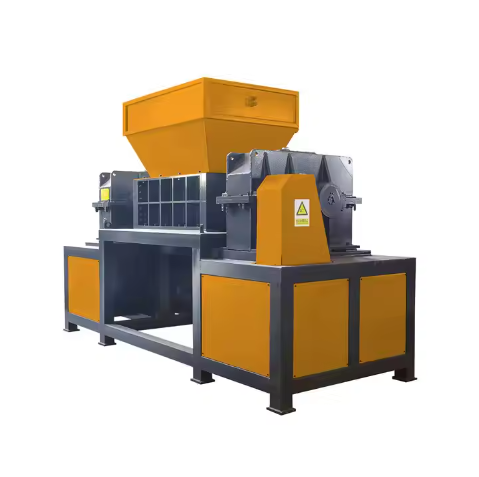 Crop straw double shaft shreddApplications:Biomass Energy Production: Shredded straw can be used as a feedstock for bioenergy plants to produce electricity or heat.Livestock Feed: Reduced-si...Get Quote
Crop straw double shaft shreddApplications:Biomass Energy Production: Shredded straw can be used as a feedstock for bioenergy plants to produce electricity or heat.Livestock Feed: Reduced-si...Get Quote -
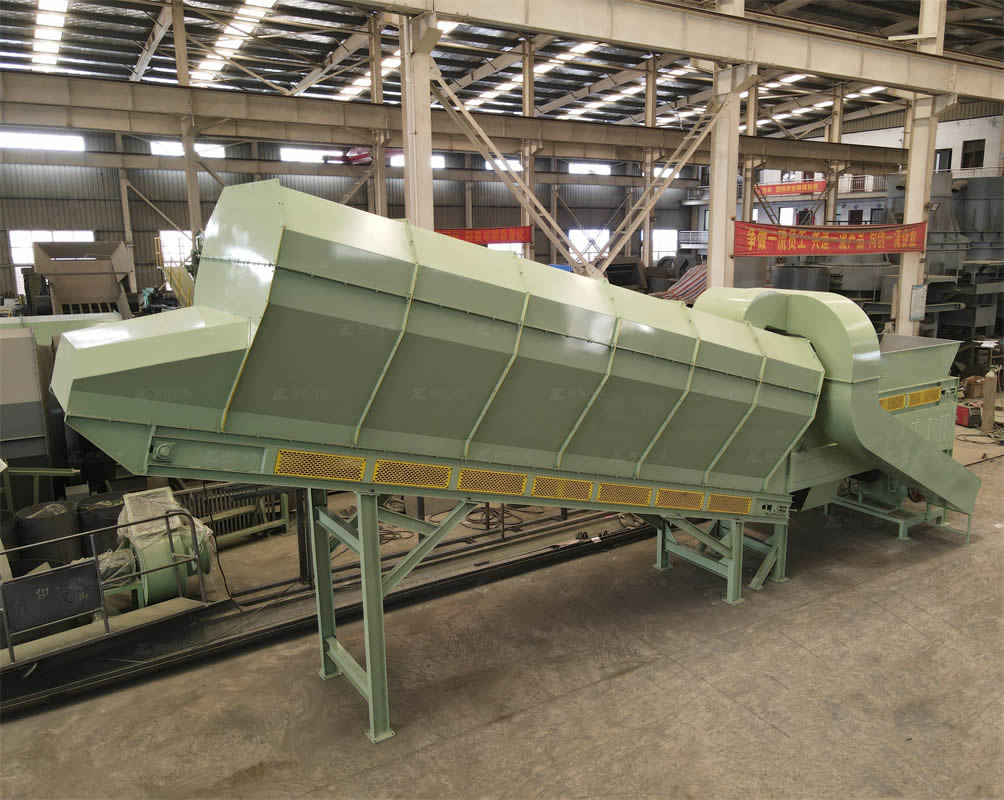 Zhongcheng Air Drum SeparatorAir drum separators effectively separate lightweight materials (e.g., plastics, paper) from heavier materials (e.g., metals, glass). This high efficiency is cru...Get Quote
Zhongcheng Air Drum SeparatorAir drum separators effectively separate lightweight materials (e.g., plastics, paper) from heavier materials (e.g., metals, glass). This high efficiency is cru...Get Quote
-
2023-01-12Apron FeedersApron Feeder is a conveyor manufactured from steel plates driven by steel chains wearing on steel surfaces. They are a robust design manufactured for durability...
-
2024-05-18Mobile Jaw Crusher PlantMobile jaw crushing station is a novel rock crushing equipment, also known as mobile crushing station. The purpose of its design concept is to stand from the cu...
-
2024-05-29Landfill stale garbage screening projectAfter communicating with our domestic customers in Shandong Province, we learned that he needed to dispose of the garbage in the landfill through excavation, sc...
-
2024-10-23Solid waste recycling plantOur company engaged in waste sorting system . We are professional about waste sorting system . We have professional technical team. Professional technical team...
-
2024-05-28Garbage screening drum screenTrommel screen is consisting of five parts: drum, frame, hopper, reducer and motor.After the material goes into the drum, it is screened along with the rotation...



